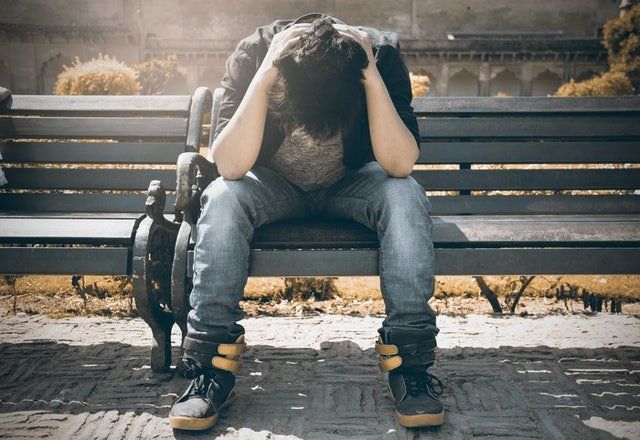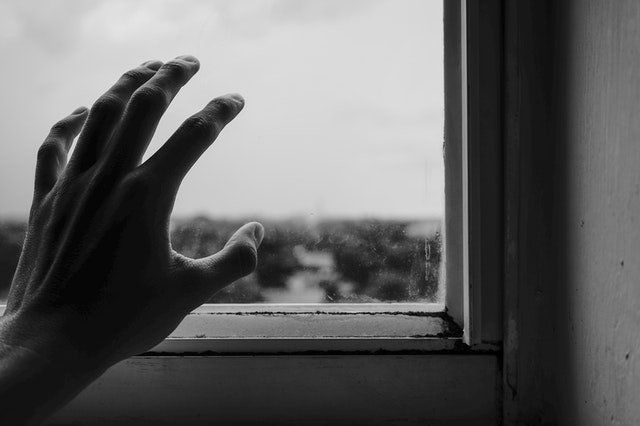What Is Stress And How To Recover
Stress is a natural human reaction to something scary or upsetting. We’re built to handle it in short bursts. However, we run into issues when stress is on-going. This post explains why and strategies that help break the cycle.
5 Key Things You Need to Know About Stress
We use the word “stress” so often, that it’s hard to figure out what it actually means.
Here is a quick and easy to understand explanation of what stress is, why it happens, and what you can do to feel better.
1) Stress is the body’s natural response to a scary situation.
- Your “fight or flight” response kicks in to prepare you to run for your life or fight to protect yourself. You don’t want to get rid of anxiety altogether. People who don’t experience anxiety at all often wind up in very dangerous situations because nothing in their brain or body tells them they could wind up in trouble.
- Your natural stress response is great for a short-term situation in which you need a blast of energy. Once the stressful situation is gone, your body is supposed to shift from “right or flight” to “rest and digest.” Stress becomes a problem when it’s chronic because your brain and body don’t get the break they need to recover.

2) A stress response is made up of 2 parts:
- Thoughts and feelings:
Our stress response starts in the brain.
The amygdala, a part of our brain in charge of keeping us safe, is constantly figuring out whether we’re okay or in danger. When the amygdala decides we’re in danger, it sends a distress signal to the hypothalamus, the part of our brain in charge of emotions. This part launches a bunch of flare guns letting every part of our brain know we’re in trouble.
As a result, every process in our brain goes into danger mode. This impacts how our body works. It also impacts how we think. This is why we think about the worst-case scenario, worry non-stop, look for answers, and seek reassurance.
- Physical:
Once our brain decides we’re in danger, it needs to get our body ready to fight and/or escape to survive. This is called “fight or flight.”
“Fight or flight” happens automatically so your brain doesn’t have to rely on you to think. This is a pretty clever hack. Common symptoms include fast heartbeat, nausea, quick breathing, dizziness, and muscle tension.
These symptoms are due to stress hormones flooding every system, changes in how your nerves are communicating with each other, blood flow, and how much oxygen is getting to your cells.
If you are stressed for a long period of time, you may start to have trouble sleeping and chronic muscle and/or digestive issues. Your immune system will also take a hit, so you’re more likely to get sick.
This is because our body is built for short bursts of stress. Once stress is chronic, all of our systems take a hit.
3) Anything in the environment that overwhelms us and cause physical and psychological symptoms is called a stressor.
People, situations, and anything around us that make us feel threatened is considered a stressor.
We know there are stressors that impact most people. These are usually linked to anything that is obviously life-threatening.
Otherwise, what overwhelms one person may not bother someone else. In fact, they might think it’s fun. For example, bungee jumping off a bridge may terrify one person but be a pure adrenalin rush for someone else.
4) How much you believe in yourself impacts how you deal with stress.
- The more you feel confident in your ability to handle challenges, the less stress you’ll feel in most situations. You trust your ability to figure it out and bounce back. This decreases your likelihood of developing depression or an anxiety disorder.
- The more insecure you feel, the harder it will be to cope with stress. Since you don’t trust you can handle the situation, you feel more helpless. This leads to stronger stress responses and more symptoms. This puts you at a higher risk of depression and severe anxiety.
5) It’s normal to feel stress during both positive and negative life events.
- Examples of positive events that cause stress include having a baby, starting a great job, or moving to your dream house.
- Examples of negative events that cause stress include getting bad news about your health, losing a job, or moving away from a home and neighborhood you love.
- Change, whether good or bad, is hard for most of us. We love our habits and routines, even if they’re unhealthy. Having to change is scary. It means we have to change what we’re used to and develop new thoughts, behaviors, and routines.
Next steps for dealing with stress
Stress is unavoidable and part of everyone’s life. What matters is how you choose to deal with stressful events and the uncomfortable feelings that happen during and after the event.
Here are four steps for dealing with and recovering from stress:
- Keep tabs on what causes a stress response so that you can prepare for the situation ahead of time.
- If you’re feeling stressed, remind yourself it’s a normal response to both positive and negative events.
- To help relieve stress, try healthy activities such as exercise, journaling, deep breathing, and spending time with friends.
Dr. Levy’s blog post on self-care has tips for easily adding in behaviors that help manage stress and overwhelm.
- If the stress doesn’t let up and starts to impact more of your life, consider talking to a mental health professional. The sooner you work through the issue, the better off you’ll be in the short and long term.
When you’re ready to learn healthier ways to manage stress, please give us a call.
Please contact us to set up an appointment.
We can help give you information, a map for next steps, and hope that you can have the life you want.
Wishing you the best,
Dr. Levy
Director
Dr. Ronit Levy is a clinical psychologist and director of Bucks County Anxiety Center in Newtown, PA. She specializes in treating teens and adults struggling with anxiety due to Anxiety Disorders, OCD, chronic illness, and life events. Dr. Levy trains and supervises other therapists and presents on mental health in the community.
Anxiety & OCD Blog Latest Posts
About Us
The therapists who practice at Bucks County Anxiety Center work with teens (ages 14 and up) and adults struggling with anxiety and OCD.
All Rights Reserved | Bucks County Anxiety Center








